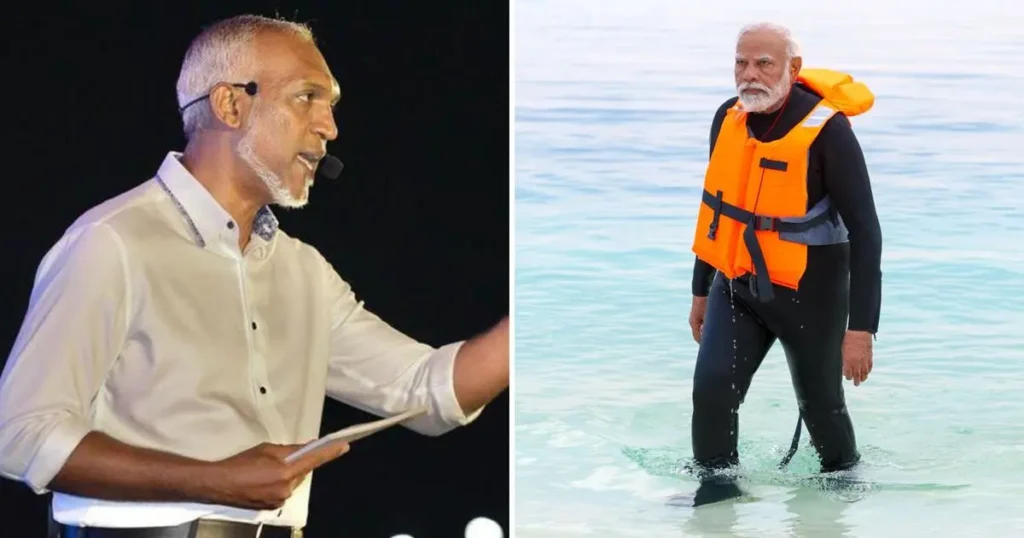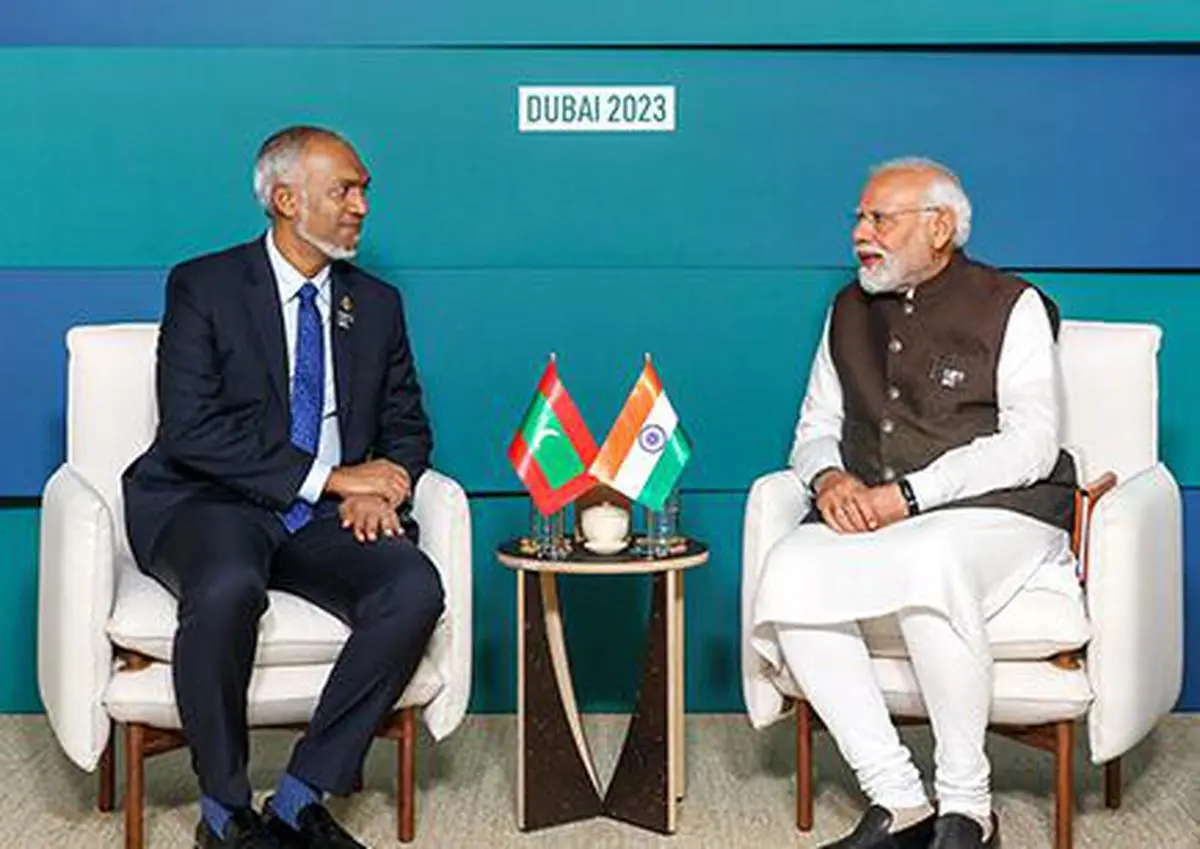India-Maldives Relations: The diplomatic dynamics between India and the Maldives have faced recent challenges, sparked by controversial comments from Maldivian officials after Indian Prime Minister Narendra Modi visited Lakshadweep. This incident has underscored the importance of maintaining a healthy relationship between the two South Asian neighbours. In this article, we explore the significance of the India-Maldives relationship and, the key issues affecting it, and propose a way forward for fostering cooperation.

Significance of India-Maldives Relationship:
1. Strategic Significance: Focal Point of India’s Neighbourhood First Policy: Maldives’ geographical proximity to India’s west coast makes it a strategic partner, aligning with India’s ‘Neighbourhood First Policy.’
India as a First Responder: Historical instances, such as India’s swift response during the 1988 coup attempt and assistance during crises like the 2004 Tsunami, showcase India as a reliable first responder to Maldives’ needs.
India as a Net Security Provider: Both nations contribute to the safety and security of the Indian Ocean Region (IOR), supporting India’s Security And Growth for All in the Region (SAGAR) vision.
2. Economic and Trade Engagements: Tourism Economy: India is a significant source of visitors for the Maldives, contributing substantially to its tourism-dependent economy.
Trade Agreements: India is a vital trade partner, with bilateral trade crossing USD 300 million in 2021, and a Bilateral USD Currency Swap Agreement further strengthening economic ties.
3. Development and Capacity Building: Infrastructure Projects: Indian involvement in major projects like the Greater Male Connectivity Project and support for healthcare and education showcase India’s commitment to Maldives’ development.
Cultural Connectivity: Shared ethnic, linguistic, and cultural ties form the basis of a strong connection between India and the Maldives.

Key Issues in the India-Maldives Relationship:
1. Ongoing Lakshadweep Issue: Controversial comments and their impact on tourism highlight the need for diplomatic resolution and the avoidance of hypernationalism.
2. India Out Campaign: An initiative causing scepticism towards India’s role in the Maldives requires diplomatic engagement and reassurance.
3. Sovereignty and Security Dilemma: Concerns over Indian military presence and the India Out campaign pose challenges, emphasizing the need for clear communication.
4. Revocation of Hydrographic Survey Agreement: Addressing apprehensions and maintaining transparency in hydrographic activities is crucial for bilateral trust.
5. China Factor: Balancing relations with China while addressing concerns over Chinese influence requires careful diplomatic manoeuvring.
Way Forward: India-Maldives Relations
1. Discover and Develop Tourism Destinations in India: Explore and promote undisclosed beach destinations in India, enhancing infrastructure and connectivity.
2. Gujral Doctrine: Prioritize diplomatic engagement, strengthen regional alliances, and engage with the local population to counter the ‘India Out’ campaign.
3. Support Capacity Building: Provide unwavering support to the Maldives in socio-economic development and democratic institutions.
4. Prudence in International Affairs: Encourage smaller nations to exercise prudence in dealing with neighbours, avoiding unnecessary provocations.
5. Comprehensive Indian Ocean Strategy: Actively participate in maritime security efforts, and humanitarian operations, and engage in regional alliances like QUAD.
Conclusion: India-Maldives Relations
Despite recent challenges, the enduring importance of India in the region emphasizes the need for a resilient India-Maldives relationship. A collaborative approach, aligned with India’s ‘Neighbourhood First’ policy and the Maldives’ ‘India First’ approach, is crucial for fostering a mutually beneficial partnership.

